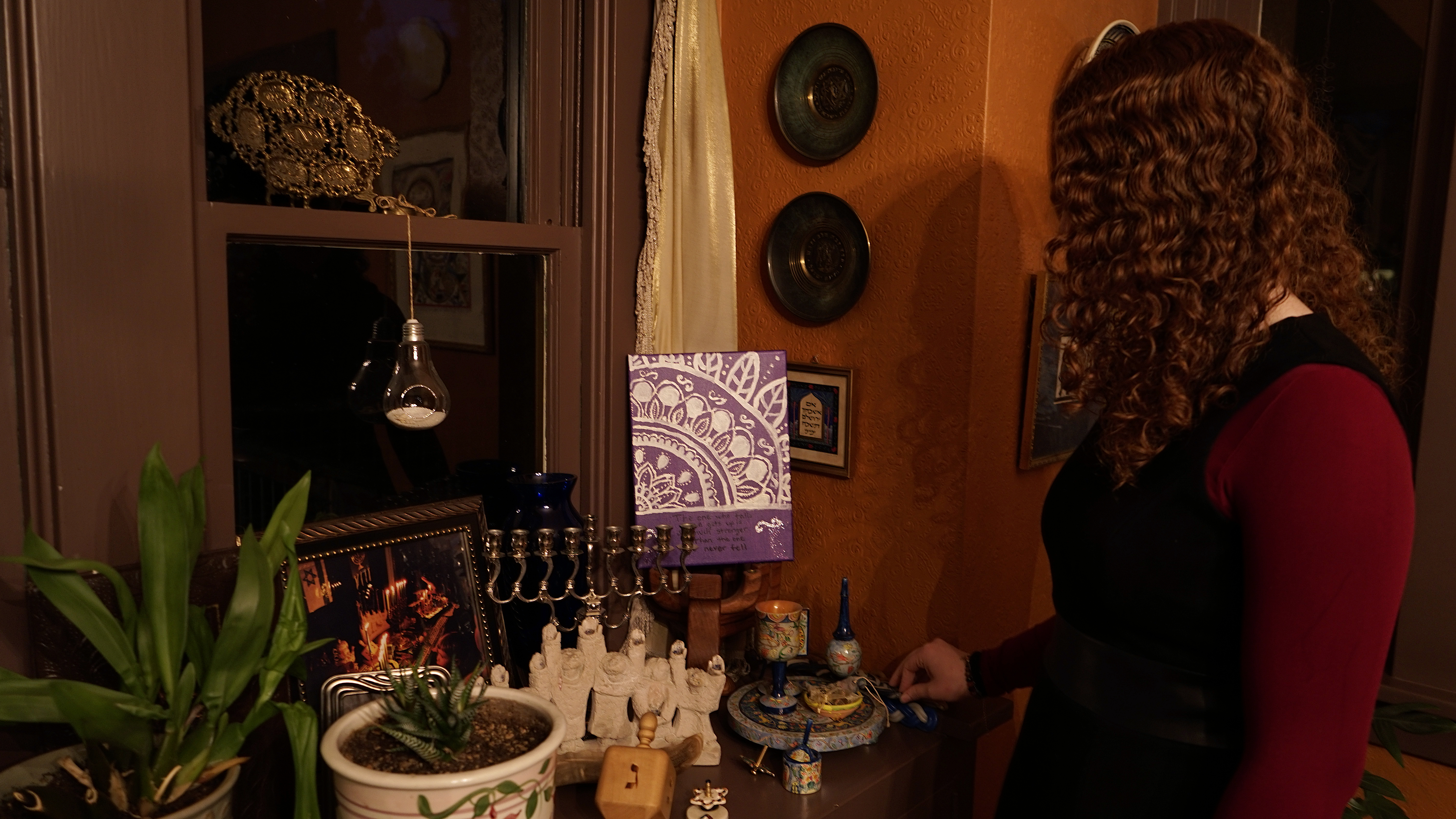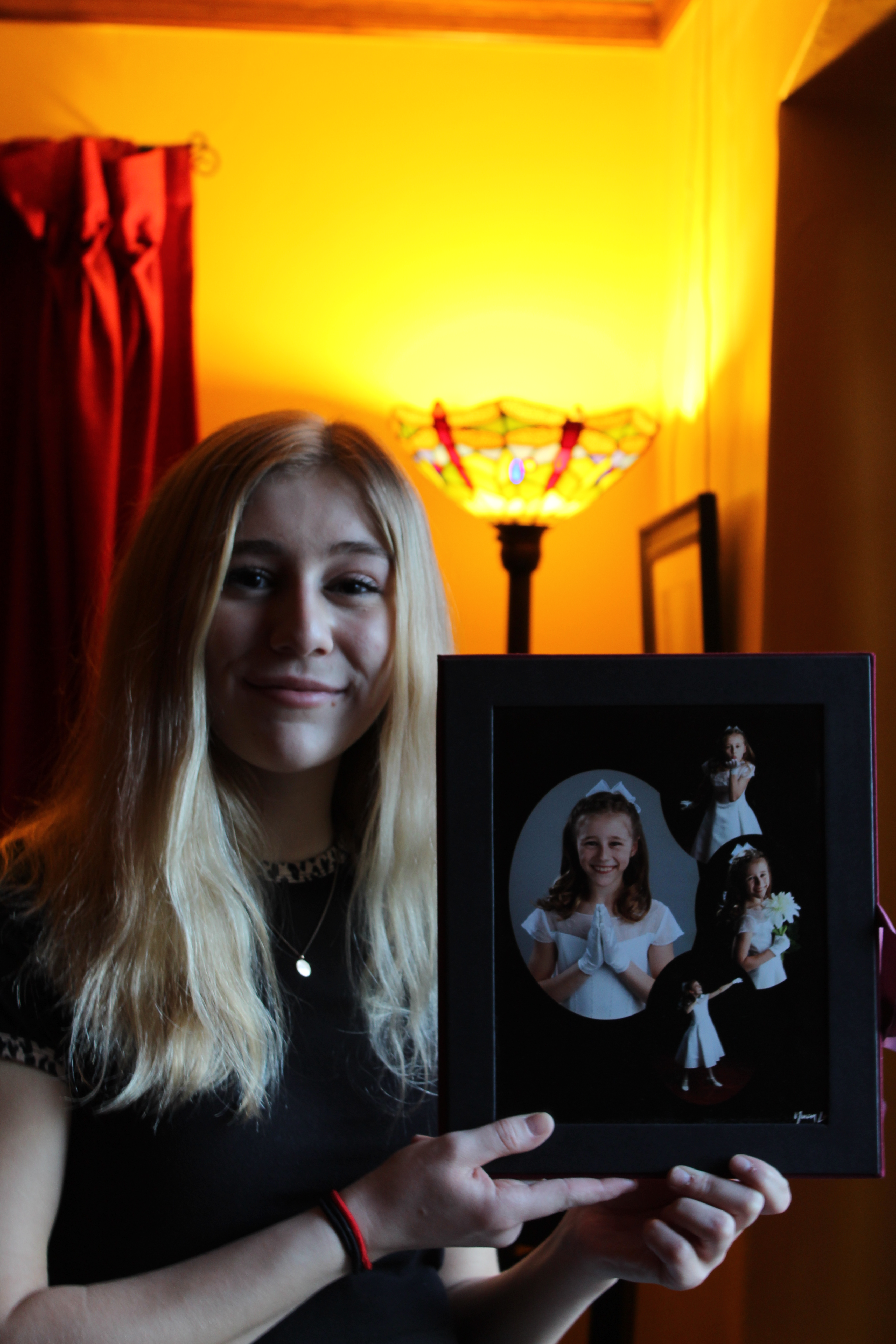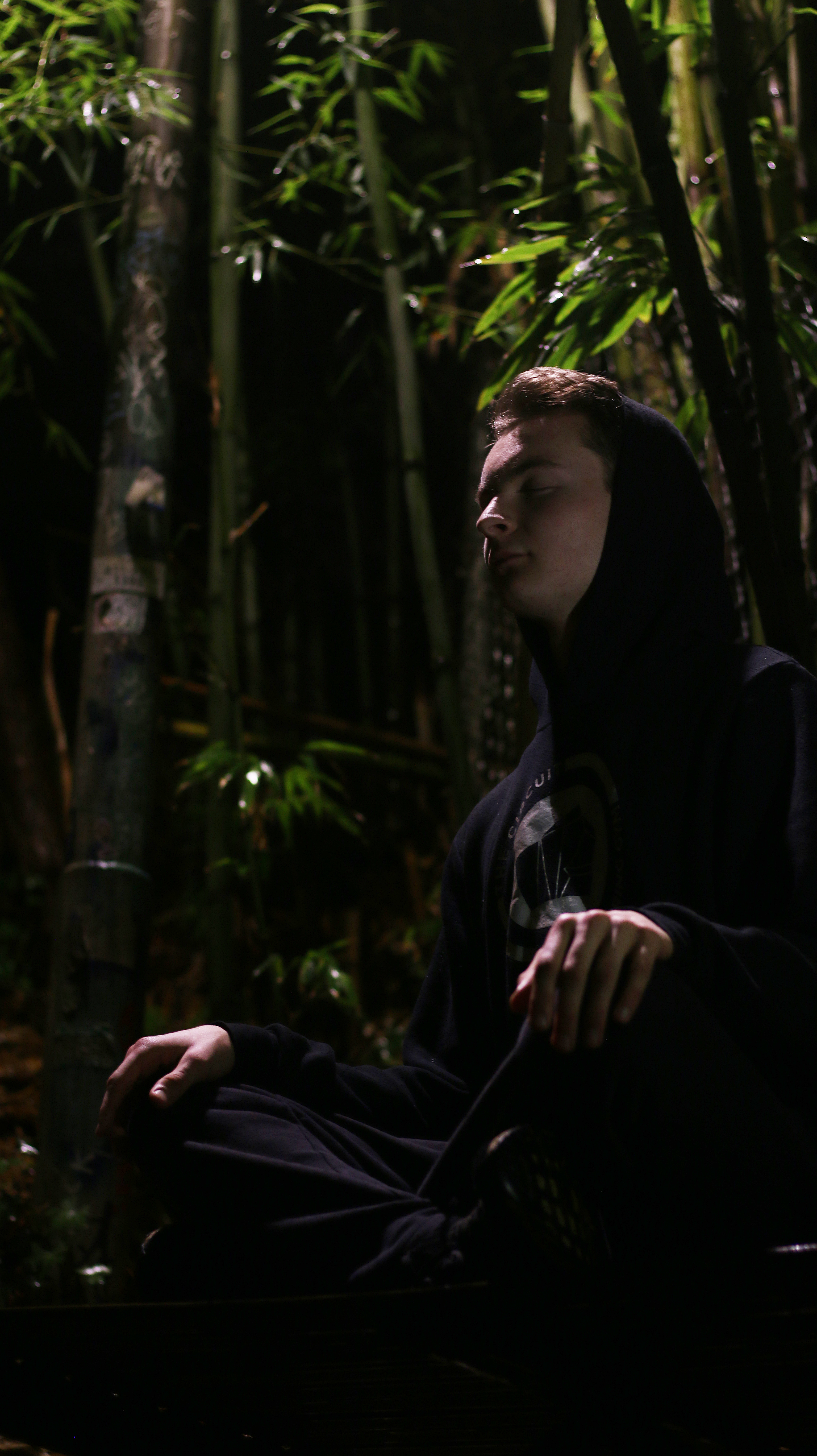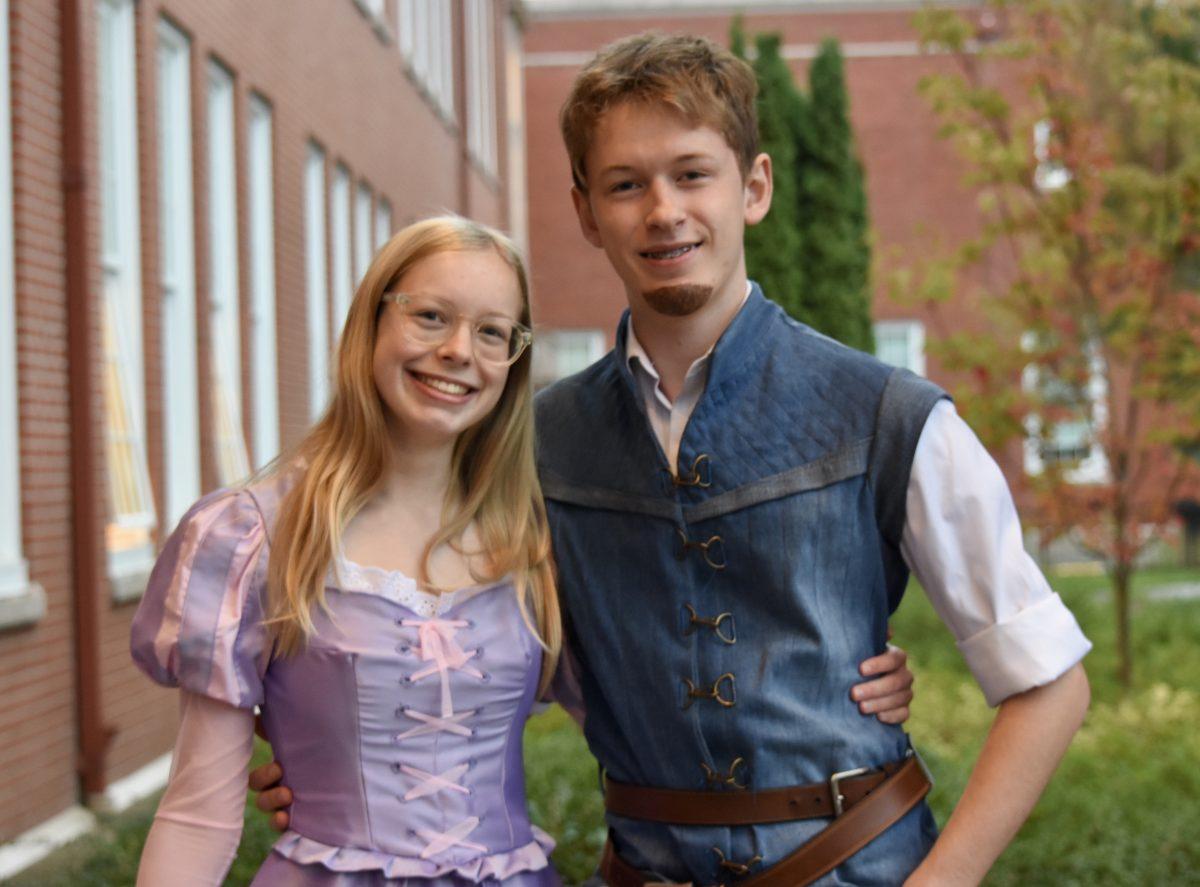It is a balmy summer evening and the atmosphere is collected and quiet. A group of campers at Camp Ramah in California gather together for a Kabbalat Shabbat, a Friday evening service. They are surrounded by the rolling hills of California and the warm night air—an ideal space for contemplation. Grant senior Rayna Davis begins her silent Amidah, which she does a few days a week .
Davis deeply values her trips to the Jewish summer camp in California. She feels they provide her time to be fully immersed in both nature and her religion. As she begins to recite her prayers, God begins to take up more space in her mind and body, and the feeling combines itself with the stunning scenery that surrounds her.
For Davis, Judaism has played a key role in shaping her thoughts and behaviors. “There are certain morals that Judaism … has given me, and I have brought that into what it means to myself, and … (how) I can put that out into the world and make it better,” Davis says.
For some students at Grant, religion creates a sense of connection and community similar to Davis’. However, the vast majority of Grant students do not practice any religion. According to a Grant Magazine survey, only 19 percent of the Grant student body practices some form of religion. Thirty-eight percent of these students practice Christianity, while 15.4 percent practice Judaism.
This religious makeup is similar to the demographic of Portland, with 42 percent of its population identifying as religiously unaffiliated according to a 2018 survey by the Public Religion Research Institute. Though many Portlanders are not religions, faith can still provide a sense of identity for many who practice. “(Religion) has shown me the significance of each individual thing … It has made me look at certain things differently, like the significance of why it’s there. It’s not just an object, it’s this growing thing,” says Davis.
Although religion can benefit many, some believe it has also been used as a justification for projecting hatred toward minority groups. “I think people use Christianity as a reason to hate … But I just really don’t see it like that … I want to see it as … ‘loving thy neighbor,’ helping each other and understanding each other,” says sophomore Sam DePinto. “My (extended) family … they have some pretty racist tendencies. And it seems like, for them, they follow the faith pretty intensely, but it seems like it’s kind of just a way to perpeuate hate and discrimination for them.”
DePinto has grappled with interpretations of Christianity that differ from her own, often feeling unsure whether her beliefs are “right.” However, she chooses to uphold the faith and positivity she was raised on by treating everyone equally, unlike the tendencies of her relatives.
Grant senior Aaron Vishcer has also made a conscious choice to follow his own path, deferring from the religion in which he was raised. “We are all unique individual people living the exact same human experience … When you’re nice to somebody, you’re being nice to yourself; when you’re mean to somebody, you’re being mean to yourself … You have incentive to be nice to everybody, you have incentive to be as positive an influence (on) the world,” Vischer says. Despite being raised attending Presbytarian Church, Vischer has transitioned away from his earlier Christian beliefs. “I spent so much time at church that it was no longer like a sacred place of religion … I instantly lost like that sense of awe, that sense of, ‘God is super powerful,’” says Vischer. After he stopped attending Church, Vischer began to think more about what the world meant to him. Discovering that he could control the way his life played out, he turned to manifestation—the idea that thinking and speaking something into the world will make it occur.
“Let’s just say I want to make a lot of money tomorrow … I put on some manifestation binaural beats, I’ll hold a crystal that’s for manifesting wealth and I’ll just meditate for an hour or two … and just feel what it’s like having a lot of money. And the idea is that if you really get familiar with what it feels like, it’ll happen naturally,” says Vischer.
Vischer identifies as being somewhere on the spiritual spectrum. Although he believes his is not a specific organized religion, for him it holds the same power.
Religion holds a different sense of importance for everyone. It may not be relevant for some, but it can also hold the highest importance for others. “It’s … having the ability to have faith in something, like having something that can kind of guide you, and something that can help you make sense of things that have happened in your life,” says DePinto. “I definitely believe in the power of faith and how strong that is and how important that is for some people.”
Rayna Davis

Senior
She/Her
Judaism
What kind of role does Judaism play in your life?
I live my life around the belief system, and just, I’m very conscious of what I do… my life pretty much revolves around being Jewish.
What is one specific way Judaism plays a role in your life?
I really do try to make a conscious decision about, “Does it affect what I’m doing for Jewish holidays?” For example, I take (time) off for all the Jewish holidays throughout the year which then, I guess, affects schoolwork and everything, but it’s something that’s important to me … I think going to a public school, it’s something that I’ve had to balance … prioritizing that over school which sometimes is hard, but it’s definitely something that’s important to me which is why I make the conscious decision to do that.
Could you describe what your beliefs mean to you?
When I was little, it was just part of who I was, I didn’t think about it differently. I went to Jewish day school; I was surrounded by Jewish kids. But as I went into public school and I’ve grown up and kind of (seen) what Judaism meant to me … it has made me look at certain things differently, like the significance of why it’s there… I also think that has a role in how I grew up, just being in nature and the importance of that. So obviously, praying … it’s not something I do every day, but if I do it’s something I’d much rather do in nature when I feel … something bigger than me.
You are in the Jewish Student Union. What do you do there?
I will run the clubs. We have meetings and we will come up with ideas that we want to do, and a lot of times it’s like fun and activities to teach people. Obviously, it’s a club for Jews to come and be around others but it’s also an education factor as well to teach kids about being Jewish, and the fun aspects of being Jewish. So we’ll do Kahoots, we’ll do crafts, depending on if there’s a holiday we’ll talk about the holiday … so it’s all different topics about Judaism. But it’s definitely given me a place in school to feel OK, even though throughout school I’m very open about being Jewish.
How do you stay connected to your beliefs when you are not surrounded by them on a daily basis?
Well, I do have Jewish friends that I keep in contact with and hang out with a lot. That’s the majority of people I usually hang out with … Because I go to Jewish camp during the summer, I have those friends that I keep in contact with. Also, just being at my house, it has that energy. We’ll do the Jewish holidays for … our communities. We’re definitely the house that everyone will come to for … Jewish holidays and stuff. I also do learning sessions with my rabbi, we try to do it weekly … So little things but I feel like a lot of the time it’s me making a conscious decision to stay connected. People have grown up like that then obviously just dissipate because it’s too much. But it’s something that is important and I hope to continue and make that more of a conscious part of my life as I grow up.
Is there anything else you want to add?
I definitely think certain places are more impactful based off how I believe. Judaism always talks about the importance of nature and stuff, and I think that’s also a big part of why I like being out in nature, especially when I’m praying … Out in nature, you can definitely feel like you connect more with the higher being and … really understand the impact that it has on your life.
Sam DePinto

Sophomore
She/Her
Catholicism
What religion do you practice?
Well, my family is Catholic, but we don’t really practice anymore. We did when I was younger. I was baptized and I had a First Holy Communion, but we don’t really go to church or anything like that.
How has being raised religiously affected your mentality?
I don’t know if I necessarily believe in God, exactly. But I believe in the power of faith and believing, being led by a higher power. Being able to see that in other people and kind of understanding how their life is because of religion and how that’s shaped them and how it’s kind of affected me.
How do you present those values in your everyday life?
Well, I just kind of try to be fair to all and (remember that) everyone’s equal. Christianity can be construed in a lot of ways. I have a lot of family members that don’t perceive the Bible the way my family does. They’re putting people down instead of bringing people up. Because I don’t follow that closely, I’ve never actually fully read the Bible, but … from what I know … everyone is equal, you should be helping everyone you can.
Do you still practice, and if so how?
My family talks about religion quite a bit but we don’t do a lot … My sisters and I, we were all baptized, we all went for our First Holy Communion, so we have pictures of those all over our house so we have constant reminders of it but it’s not something we talk about a lot.
What kind of things do you discuss regarding religion?
We have some family members that … don’t perceive the Bible in the same way we do. So we have discussions about that, and …some of our disagreements with that. While we believe the same thing, there are some pretty big differences.
What are some ways you disagree with them?
Well, my family (thinks) the Bible is talking about giving everyone an equal shot, and we have more of an equality standpoint …helping everyone and treating everyone with respect no matter who they are.
How does seeing your close family taking religion and turning it into something that is hateful affect you?
For me, it makes it a lot harder to believe in it. I’ve definitely had not (an) identity crisis but uncertainties … And I kind of have thought that I don’t really believe in God at all, and like I don’t really subscribe to the whole religion thing as much and I think that has made it harder to want to participate in church or even just talk about it with friends.
What is religion about to you?
I think it’s just like having the ability to have faith in something, and something that can kind of guide you and help you make sense of things that have happened in your life … I really believe in … the power of faith and how important that is to some people.
What would you say to people who want to use religion as a reason to hate?
That’s kind of a hard one. I mean, a lot of people interpret the Bible and other religious texts in their own way. But I think you can be full of hate but I don’t think religion is the place to perpetuate that … I think people should reevaluate the motives behind their beliefs. Not that what they’re believing is necessarily wrong, like everybody believes what they want to believe and that’s awesome. But I think it’s important to reevaluate those beliefs and if there’s some parts of those that are perpetuating hate, then just thinking about them again … I think just branching out and learning and educating yourself is really important, and no matter what religion you follow, just staying educated and keeping the other perspective in mind … all the time.
Aaron Vischer

Senior
He/Him
What religion do you practice?
I don’t really consider myself practicing any religion specifically, mostly because I kind of have a problem with organized religion. Fundamentally, that’s why I was an atheist for a long time. But I do believe in some sort of spiritual kind of energy type stuff.
How does that play into your everyday life?
Well, that’s kind of a complicated question. OK for one, part of what I’m doing is manifestation, if you know what that is. Basically, it’s (the idea that) anything that I need on a conscious or unconscious level will find its way into my life … so if something good happens I’ll be like, “Oh cool, that’s just me helping myself out.” If something bad happens, it’s not necessarily a bad thing, it’s more like, “Oh this is me doing something to myself so I can teach myself something in the future.”
Were you raised with religion?
So, my mom is a Presbyterian pastor, so for the first solid 14 years or so of my life I was really involved in the Church … (my mom) worked there so I would spend every Sunday there like normal, but then also I would spend weekdays there, visiting her at lunch there. So what happened was that I spent so much time at church that it was no longer a sacred place of religion and was more like a home away from home … I was just like, “Oh that’s how … it works.” And so, that’s sort of part of why I became an atheist. There’s not really a point, there’s clearly not a dude in the sky controlling everything. And then eventually I had this realization that I used to think we had everything figured out as a species. We were killing it, we were on top of the game, we had medicine figured out, science figured out, and then there was this moment where I was like, “Wait a minute, we don’t have anything figured out.” There’s so much going on that we can’t even begin to understand. And so that’s when I was like, “Well, I don’t know if I believe in a god per se, but I definitely think something else is out there.”
Since your mom is a pastor, how did she take that switch?
I mean, she did a really good job of pushing both me and my brother away from religion. (Because) my brother was an atheist before I was … she really took it in stride, she’s a nice person, she’s not super-duper fanatical about religion so when me and my brother were both like, “This seems like B.S.” she was like, “OK, you know, that’s your spiritual journey that’s your decision.” And then when I started telling her about my new belief system after I had kind of developed it, she was like, “Yeah, sounds like we are pretty much on the same page, like I like what you’re saying, I agree with what you’re saying.” It’s good because she’s just been supportive all the way through regardless of what the belief was.
What is your general belief system now?
Pretty complicated, not going to lie. But if I can sum it up briefly, it’s that all of us are the same. We are all unique individual people living the exact same human experience … so in practicality, that means you have incentive to be nice to everybody, you have incentive to be a positive influence to the world. But more than that, it gets on a lot of levels, but with the fundamental idea of everybody being the same, that unlocks a whole world of possibilities. So, it sounds a little kooky, I know, and I’m completely crazy for saying this, but telepathy is real. And basically, the way telepathy works is you allow yourself and somebody else to basically share one mind. And so it’s not so much like I think something and you get it in your head, it’s more I think something, and because I’m thinking it, you’ll have the exact same thought simultaneously. And it’s kind of that interaction of we are the same form of consciousness, just in separate bodies or separate places. ♦






























